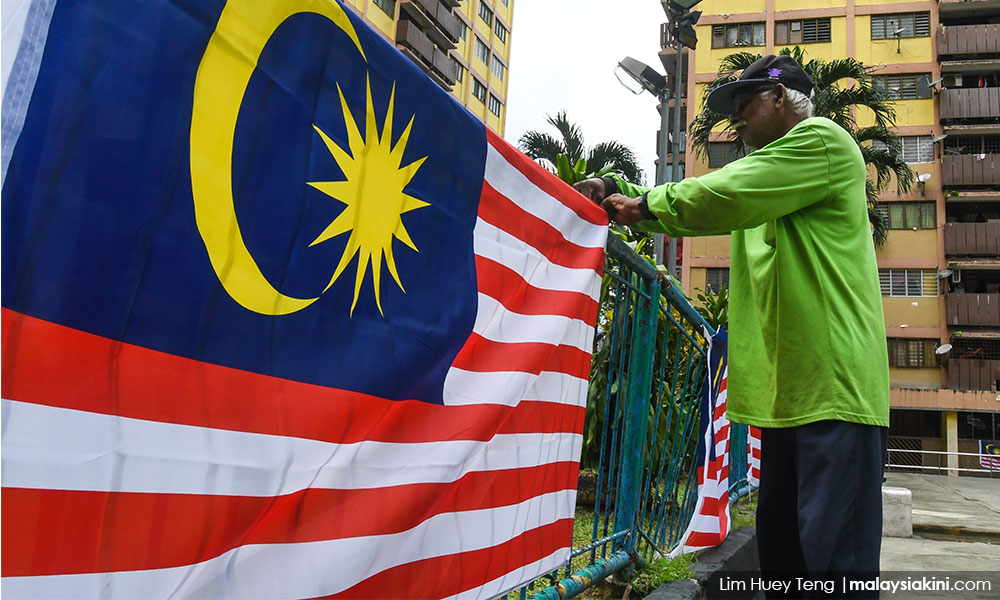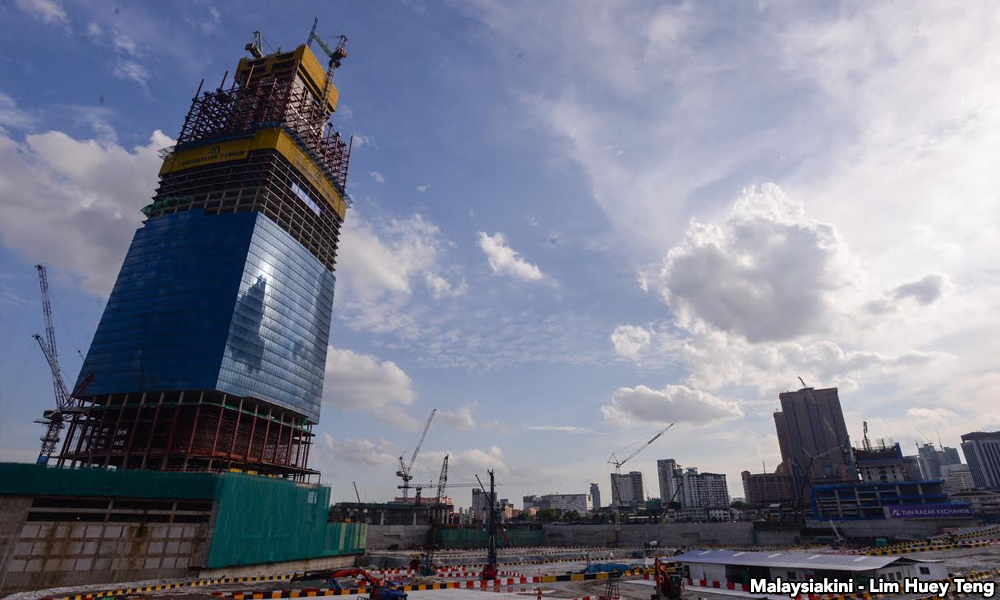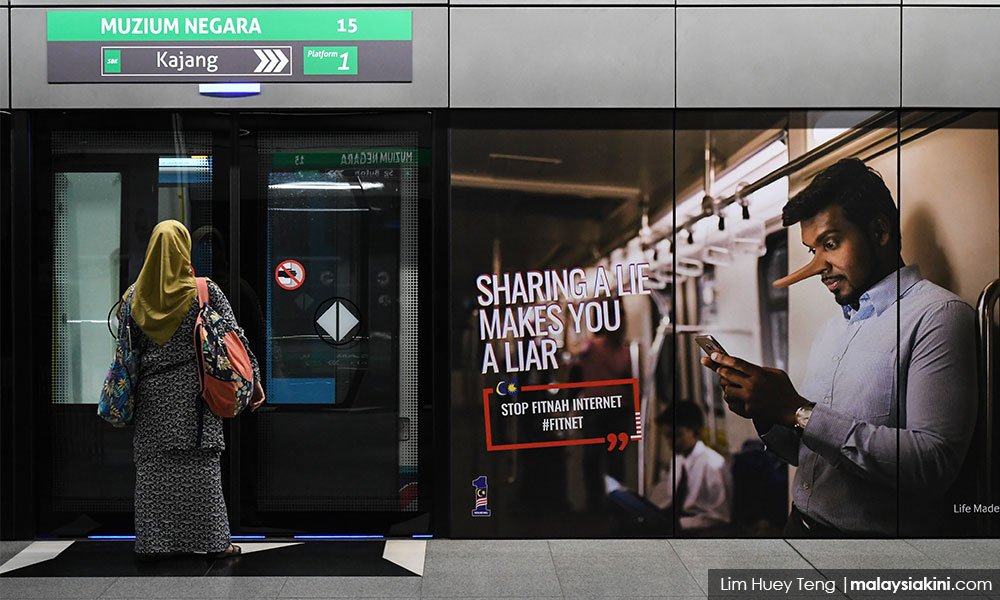COMMENT | We are fast approaching a thoroughly rigged election, a fake news law has just passed, and our only hope is an opposition who has chosen someone with questionable credentials as its leader. Is it any wonder people embrace any distractions that are thrown their way?
So it is with great fortune that this week, a rich white person who really should have known better decided to stumble his way into one of two things that Malaysians identify with their nationhood: our food. Amidst the ensuing hilarity, I want to take a few moments to outline some interesting afterthoughts that we might all consider from ‘RendangGate.’
What makes a Malaysian anyway?
All politicians make it a point to talk about nationalism. They attempt to identify certain values and ideals (which they hold) as being definitions of that nationalism. Hence it is ‘Malaysian’ to do this or that, believe this or that, oppose this or that.
Bits and pieces of this narrative filter down to the common people over the decades, for better or worse. But Malaysia is an interesting case.
If you were to ask someone from a more dominant country, what it means to be someone of that nationality, they will probably respond with some founding myth, or some set of cultural traditions, or (sadly) a racial identity.
If you asked a Malaysian the same question, you might get a vague set of agreeable values that could just as easily be assigned to any other country. Tolerance, respect, progress, industriousness, whatever. But you are more likely to arrive at one or both of: food or sport.
This is certainly what happened when the Malaysian Progressives in Australia ran a discussion group on the very topic of national identity two years ago.
For all the back and forth about our history and ideals, food and sport are the only things that Malaysians reliably agree are 'presentable' to the outside world.
Flimsy nationalism
Conclusion: nationalism is a construction. We made it up. This is clear with most younger countries, and it is especially clear when the things that states usually fall back on when writing their own history (founding myths, racial identities) are varied and called into question.

First, let me say that this is not necessarily a bad thing. The inverse of this conclusion is that any country that is established enough to have a 'neat' national identity is almost certainly hiding something ugly. In the case of all currently existing 'superpower' nations, this is generally some combination of ethnic cleansing, imperialism or dictatorship.
We should be more concerned with what our governments try to do with the nationalism they invent. Many people noted the abrupt and unexpected unity between Malaysians and Indonesians over the crispy rendang comment. Few are asking why we supposedly hate each other in the first place.
How ironic that these problems also happen to be creations of British imperialism. If only we got this angry over all the other troubles they caused us.
Nobody is born xenophobic
Originally, Malaysia existed in a region of loosely related kingdoms and states called Nusantara, with related cultural (and culinary) traditions. Then the Europeans invaded, and after the British and Dutch fought a war, they carved up the region into "countries."
The Indonesians expelled the Dutch through a kind-of-leftist national revolution, while we (and by we, I mean Umno and the Sultans) negotiated our independence by treaty.
But the British still wanted influence over our territory for resources, strategic military bases and to fight the communists. So they cobbled together 'Malaysia' from the parts they could gather.
Sukarno, Indonesia's new kind-of-leftist president, was not comfortable with the biggest imperialist of the day randomly creating a country on his doorstep. So they started a border war with us. Today we know this war as 'Konfrontasi'.
It lasted three years, and everyone's propaganda department said horrible things about the enemy side.
Then there was a coup in Indonesia in 1965, the Indonesian Communist Party was massacred out of existence, and General Suharto became president until he was taken down in 1997 when the people couldn't handle the financial crisis anymore. The rest is history.
The point being, a lot of the supposed animosity between our two countries is a hangover from a border skirmish that took place half a century ago. Certainly ordinary people from both countries have no particular opinion of each other.
This is true for many countries. What appears at first to be a ‘natural’ instinct to defend one's own 'community' is in reality a constructed fear, made up by states in competition with one another to control labour and maintain profits. If that fear happens to violate the existing racial diversity in a country, so be it.
Too often this nationalism can be contradictory in nature. Thus the Umno government can rail against the ‘Chinese takeover’ and ‘pendatang’, while accepting bailouts from the Chinese government. Bersatu can simultaneously promise racial equality, and to uphold ‘Malay rights’.

We all saw Najib's response to RendangGate. It is frustrating to see the very people who spend their day jobs whipping up Malay supremacy and xenophobia trying to play cultural hero. We have no use for it and we should reject racism and cultural division in every form, especially if it supposedly forms our 'identity'.
If we spend our days wondering why Malaysians can't always be as united as they are over a food-based insult, we need to accept that our national identity is an invention and deal with it accordingly. We must learn to understand unity as solidarity, and not conformity.
And let us be thorough with this question. If a stateless person, or a migrant, or a refugee, would share a rendang with us at a table, do they not deserve to be a part of this country?
If a Chinese, an Indian, and a Malay can share a rendang, why do some people think Article 153 means they can't share power? Let us be very clear who is and is not a threat to our sharing.
Double standard reactions
I want to make one final point about the massive reaction the rendang comment received, compared to the fake news bill, the redelineation report, and any number of political topics that have a greater impact on Malaysians.

I reject the idea that this is proof of Malaysians' ignorance. Rule number one in a democracy is that you never blame the people for making bad decisions. I believe the reason is twofold.
First, the target here is a single white man in a faraway country who has no power over us. We can open up on him and petition to get him fired as a convenient and justified expression of our anger.
But it is exactly that and nothing more. We do not understand ourselves any better through this case. We do not refine our worldviews through this case. It is intellectually 'disposable'.
Second and more importantly, this hits closer to home for some reason. It feels more relatable. Why? I think it's because it calls to a part of all of us that wishes we could just stop fighting all the time.
We know censorship and election cheating and corruption are important. But for a brief moment, the act of lashing out at this chef makes us feel like we're having an effect on the world, and not just shouting into a crowd where nobody will listen.
Don't just wish for it
The political problems we face in this country are harder to fix and more divisive than some chef's ignorance. In other countries, the memory of struggles against oppression often lives on in the people more strongly that the government-approved nationalism they are fed at school. It will take more than votes and occasional street protests to bring about the change we seek.
So I ask you, dear reader, are you prepared to leave the keyboard and act? Are you prepared to ensure that just as politics touches every realm of our lives, so we should be free to discuss politics and organise everywhere, at our workplaces and schools and on the streets?
When all our leaders will offer is jabs and false saviours, are you prepared to take action into your own hands?
Or will you just let someone tell you that you can never win unless the rendang is crispy?
JASON WONG is president of the Malaysian Progressives in Australia (MPOZ), which is a movement of young Malaysians in Australia who strive for open dialogue of political reform.
The views expressed here are those of the author/contributor and do not necessarily represent the views of Malaysiakini.

